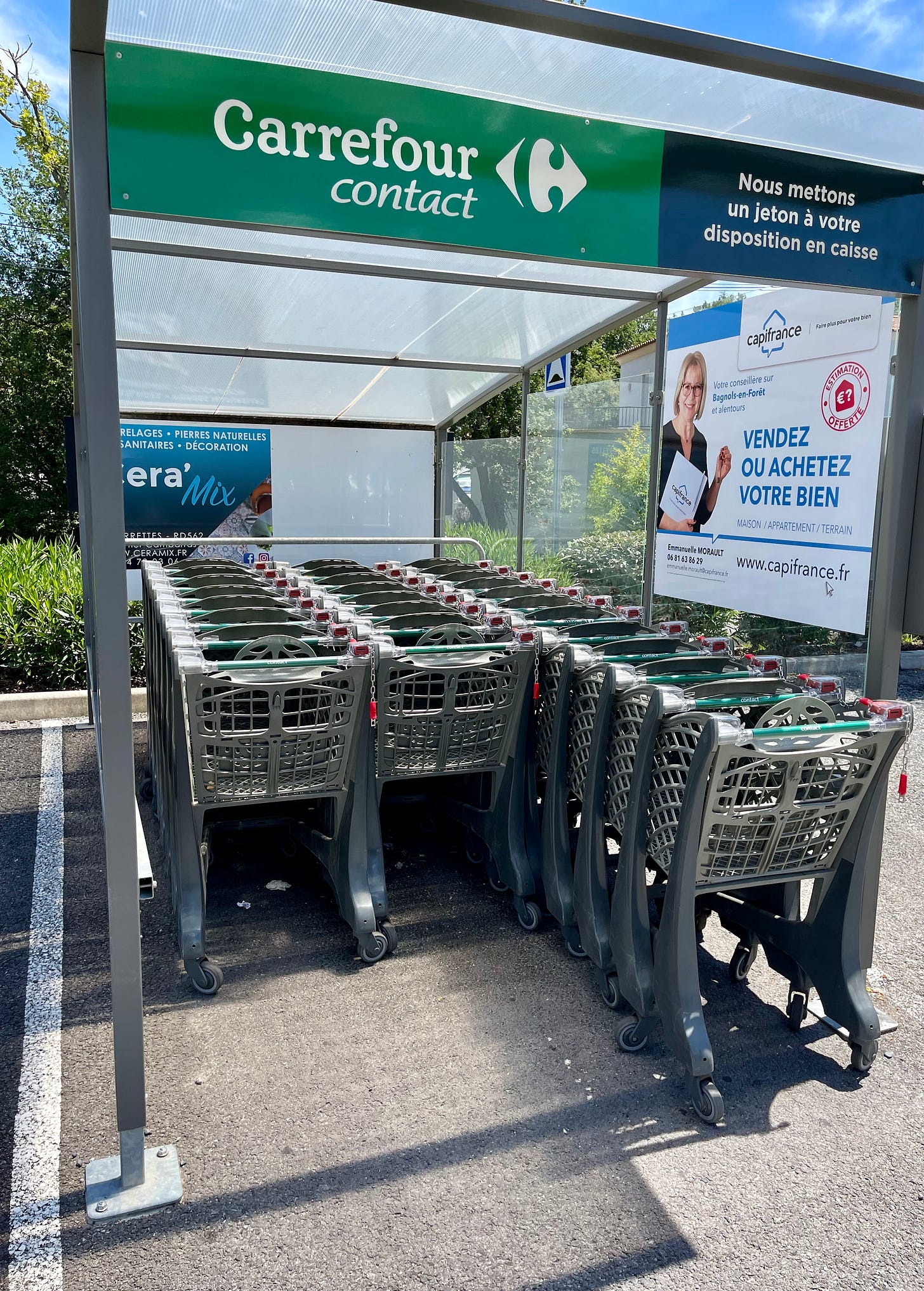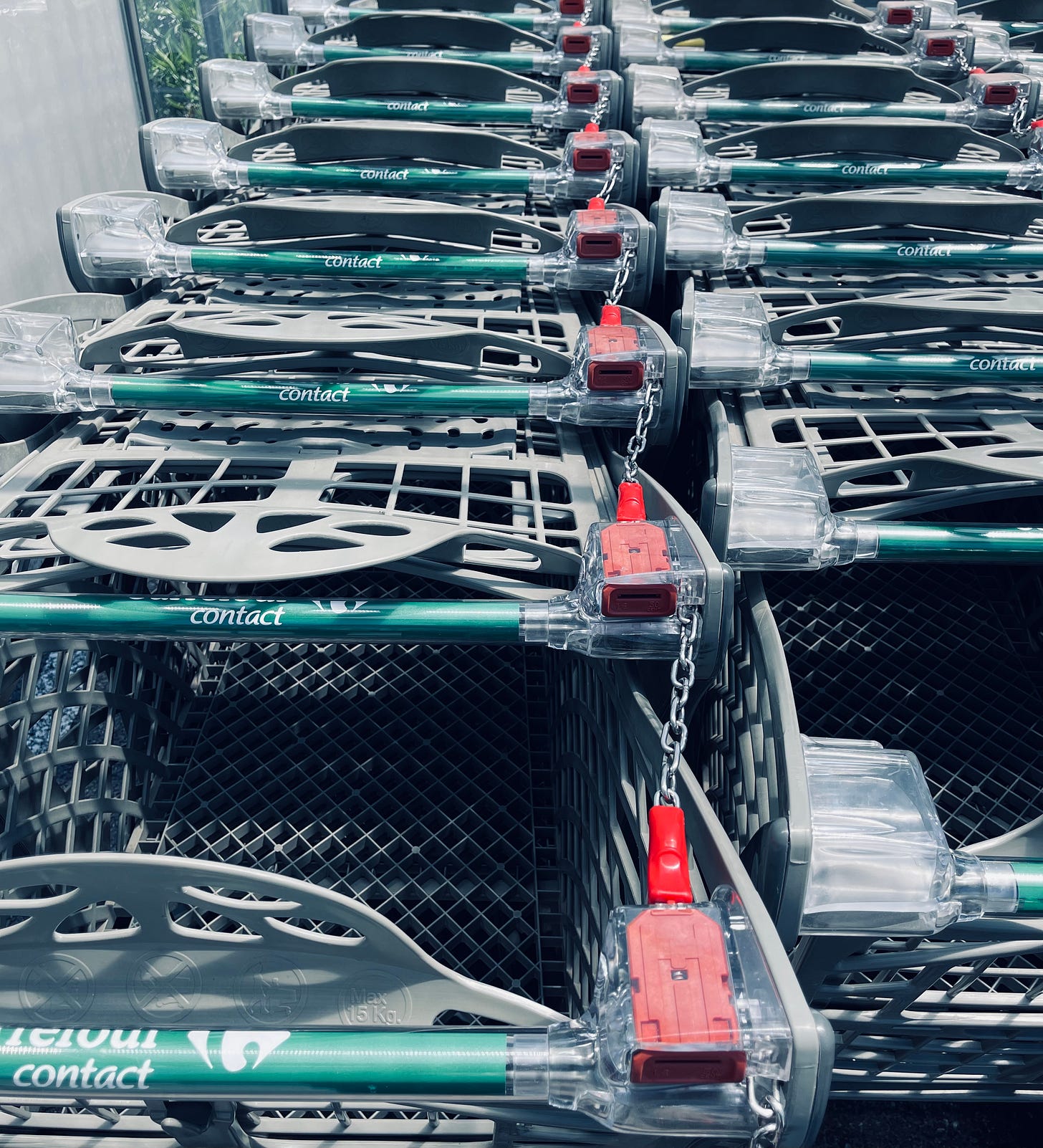
I must admit, I was starting to get a bit agitated.
I was on the coast of Normandy in the corner of a cold, dark grocery store parking lot trying to get a shopping cart to grab some groceries and maybe a bottle of Calvados.
Back home in San Francisco I would expect shopping cart issues. But here in France the carts had not been stolen. Au contraire, they had all been locked up – hours before closing.
It made no sense. But pulling on one cart after another was getting me nowhere.
“Monsieur, permettez-moi” said a well-dressed stranger stepping out of the darkness.
And with that, my new friend pulled a euro out of his pocket, slipped it into a coin slot on the handle and easily pulled the now detached shopping cart free of the rack.
“Viola,” I said, desperate to re-establish my international traveler cred. “Merci monsieur,” I added, while thinking to myself: “Boy do I feel stupid.”
“And when you’re done be sure to re-connect the cart and retrieve the euro to use next time” he proudly added in flawless English.
With that he was gone, a euro poorer but pleased at having done a good deed.
But the exchange left me to wonder. If the French can so easily and effectively solve the issue of stolen, abandoned and just plain in-the-way shopping carts, why can’t a similar token system be implemented in the U.S. and elsewhere?
There certainly is a need.
They wind up in parks, along the side of the road, in abandoned buildings, homeless encampments, parking lots – you name it. We’ve all seen them.
Globally it’s an $800 million problem, with more than two million carts stolen every year, reports the Food Marketing Institute.
The French “one euro, one cart” system works. The euro (or token available by making a donation to charitable groups like Rotary International) is returned when the cart is returned.
The result – cleaner parking lots, parks, streets and neighborhoods. And there is always a functioning cart available.
Sure, it would take some shopper adjustment.
And to be perfectly honest, there are more pressing issues out there. Among them a murderous, senseless war in the Ukraine, a tanking stock market and a Supreme Court with a dangerous disregard for legal precedent and individual rights.
But with all that said, sometimes all it takes is a small “win” to start to turn things around. Perhaps the lowly shopping cart is an encouraging indication that seemingly intractable problems can be solved.





Standard operating procedure at ALDI